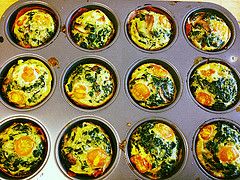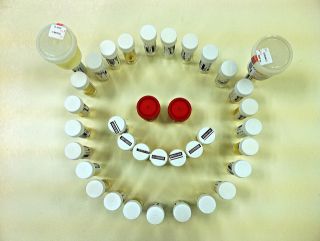Sleep
Five Year Synthesis: Start Here Post
What to eat and how to sleep for a healthy and happy brain
Posted May 3, 2015
In the midst of working with Drew Ramsey, MD on our next Food and the Brain presentation for the American Psychiatric Association Annual Meeting in Toronto*, I realized I’ve been writing about food, lifestyle, and psychiatry using an evolutionary lens for the last five years. It’s a good time, then, to bring some ideas together into a synthesis of what I’ve learned. I don’t generally go back and edit old blog posts to reflect something new or opinions that have changed, though sometimes I will add links to new posts that might reflect new knowledge, so these composite posts are a good place to start if you are new to the blog.
Without further ado, then, here are the basics of Evolutionary Psychiatry when it comes to diet and sleep. Seemingly controversial statements will be linked to prior blog posts, Pubmed articles, or books that spell out the scientific evidence for these recommendations (or at least how I interpret them).
Food
Our brains are large compared to other primates, while our guts are relatively small. That means we are required to eat exceptionally nutrient rich food to get enough vitamins, minerals, energy, and essential fats for the brain to function well. A plant and animal diet comprised mostly of whole foods, without highly refined carbohydrates or industrial fats is ideal for our huge human brains. Vegetables, fruits, seafood, meat, eggs, nuts, beans, starchy tubers, some dairy, and certain unprocessed whole grains*** are the best foods for humans. Good cooking and dressing fats include olive oil, butter/ghee, and avocado oil. Coconut oil is realtively stable in frying, and lard is good too for baking and sauteeing if you get it from pastured pigs. Three factors make an omnivorous whole foods diet ideal:
1) It supplies all the nutrients we need for brain and body health. Some absolutely vital brain nutrients, such as vitamin B12, long chain omega 3 fatty acids EPA and DHA, and zinc are essentially absent in plant foods. Other nutrients such as choline are relatively low, which is why I do not recommend a strict vegan diet for optimal brain health and especially if you have psychiatric illness of any kind. If you do follow a vegan diet for moral or other reasons, please consult with a qualified nutritionist and take the appropriate supplements.**
2) A whole foods diet will be low in toxic elements of modern processed food, including certain food dyes and preservatives that may change behavior and resiliency in some vulnerable people, easily oxidized omega6 fatty acids used for frying in restaurants and making bagged chips, industrial trans fats, and also will not have the designer hyperpalatable elements that make processed food addictive.***
3) A whole foods diet will be appropriate food for the 100 trillion microbes that live in our guts. These microbes have immune, hormonal, and direct nerve communication with our brains, and they react to processed foods, particularly a flood of processed carbohydrates, in a very negative way that can lead to chronic whole body inflammation with the same type of inflammatory immune response found in people with major depressive disorder. There is also evidence that artificial sweeteners and the emulsifiers found in commercial salad dressings and many other processed foods negatively affect the gut biome.****

A note on other specialty diets: Some brain disorders like dementia, traumatic brain injury, bipolar disorder, schizophrenia, and autistic spectrum disorders may benefit from a ketogenic (high fat, very low carbohydrate) diet, and I would love to see them properly studied. Almost everyone benefits from being in ketosis every once in a while (from intermittent fasting or fasting overnight if you have a healthy metabolism). A strict, long term ketogenic diet is similar to pharmaceuticals in that it has associated risks and benefits and I would recommend regular check-ins with your physician and a nutritionist to make sure you are getting all the vitamins and minerals you need and other signs of liver, kidney, thyroid, or immune problems aren’t cropping up.
Sleep

We need sleep to literally wash out the toxic build-up our energy-hungry brains make with cellular respiration every day. Sleep is so important it should be prioritized in front of exercise when it comes to brain and body health. Keeping a regular schedule, staying off electronics a few hours before bed (or using blue-blocking glasses), and keeping caffeine intake low and alcohol intake low and away from bedtime will help make going to sleep and staying asleep easier. Even an hour less sleep a night than we need, particularly on a chronic basis can negatively affect mood, motor functioning, and cognition. The national sleep foundation recommends most adults get 7-9 hours every night. According to this interesting interactive map, adults in no American city average the recommended amount of sleep. Proper sleep makes you a better thinker and more efficient during daytime hours, and is absolutely essential to recover and remain symptom free in many psychiatric conditions.

So that’s food and sleep in a nutshell, but I have just one more note to add. Every time I’ve posted a food or lifestyle intervention for depression, etc. blog post in the last several months, I’ve had comments to the effect of “well, what food I eat won’t change the fact that I had horrible trauma as a child.” No, it absolutely won’t, and more traditional interventions such as psychotherapy and medications can be very useful to help cope with bad things that happened in the past or to deal with new losses or stress that bring on psychiatric symptoms with functional impairment. Eating well and getting enough sleep will help your brain recover from past traumatic insults and will make you more resilient for present and future stress. In some cases, keeping a regular sleep schedule and eating well are essential to obtaining and maintaining recovery. Unlike therapy and medications, a healthy diet and appropriate sleep will help all areas of health, not just mental illness, making lifestyle changes meaningful and low-risk interventions.
I’m excited to see what science teaches us about lifestyle and mental health in the next five years!
*Our Food and Brain Presentation will be on Monday, May 18th 2015 from 9-10:30 am at the Metro Toronto Convention Center, Level 100, North Building, Room 104. You must register for the Annual Meeting to attend, and there are one day tickets available. The last three years our room has been packed to the gills, and last year over 100 people were turned away, so come early just in case the same thing happens despite the early hour. We plan the workshop to be extremely practical and we always add the latest data to make it up to date with something a little new every year.
** Algae DHA will not replace EPA/DHA combination fish oil for brain health, nor will flax oil (ALA) alone. A mostly plant-based diet can be very healthy, but adding seafood and eggs can make all the difference for a better micronutrient profile for the brain.
*** Some people are flat out allergic or intolerant of grains, but many people can tolerate them just fine. It’s probably worth while to go grain-free (no wheat, corn, barely, rye, oats, etc.) for a month or two to see if there are psychiatric, gastrointestinal, or skin symptoms that improve. Then add back the grains to see if symptoms come back. If you do react negatively to gluten, it is important to be tested for celiac disease. Also, most of the grains we eat are highly refined and processed so do not fit in with a whole foods diet. That yellow box of processed cereal with “made with whole grains” stamped across the top is not particularly healthy, and the “gluten-free” cupcake is no healthier than the regular kind but is fine for an occasional treat if you have celiac disease. Steel ground oats, rice, corn on the cob, and the barley in tabbouleh are examples of minimally processed grains that I think can be part of a healthy diet in most people. The other common modern dietary component that many people are intolerant to is dairy. The Mediterranean Diet has the most scientific evidence for good brain health. I myself eat a mostly paleo-style diet due to some food intolerances.
****You can buy salad dressings without emulsifiers, and make your own mayonnaise relatively easily at home. It works best if you have an immersion "stick" blender.
Image credit
Copyright Emily Deans, MD




